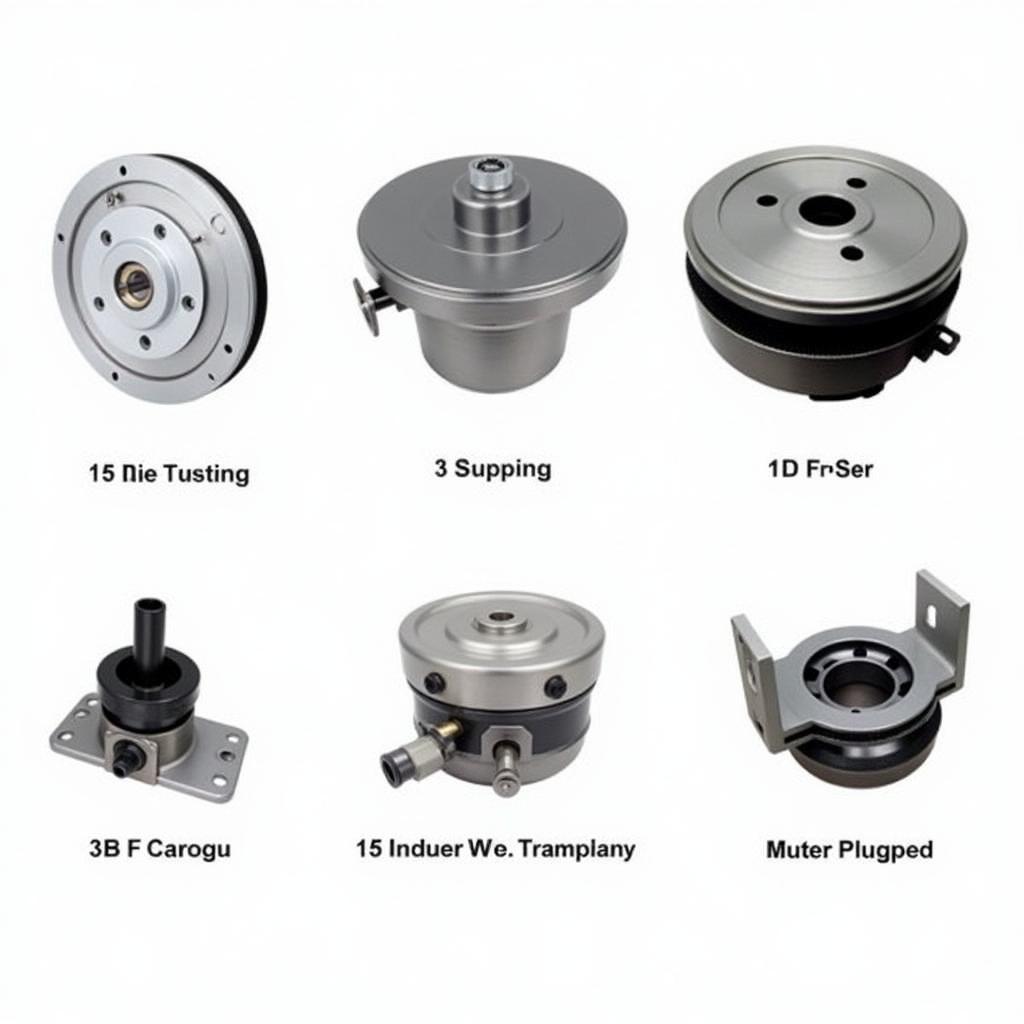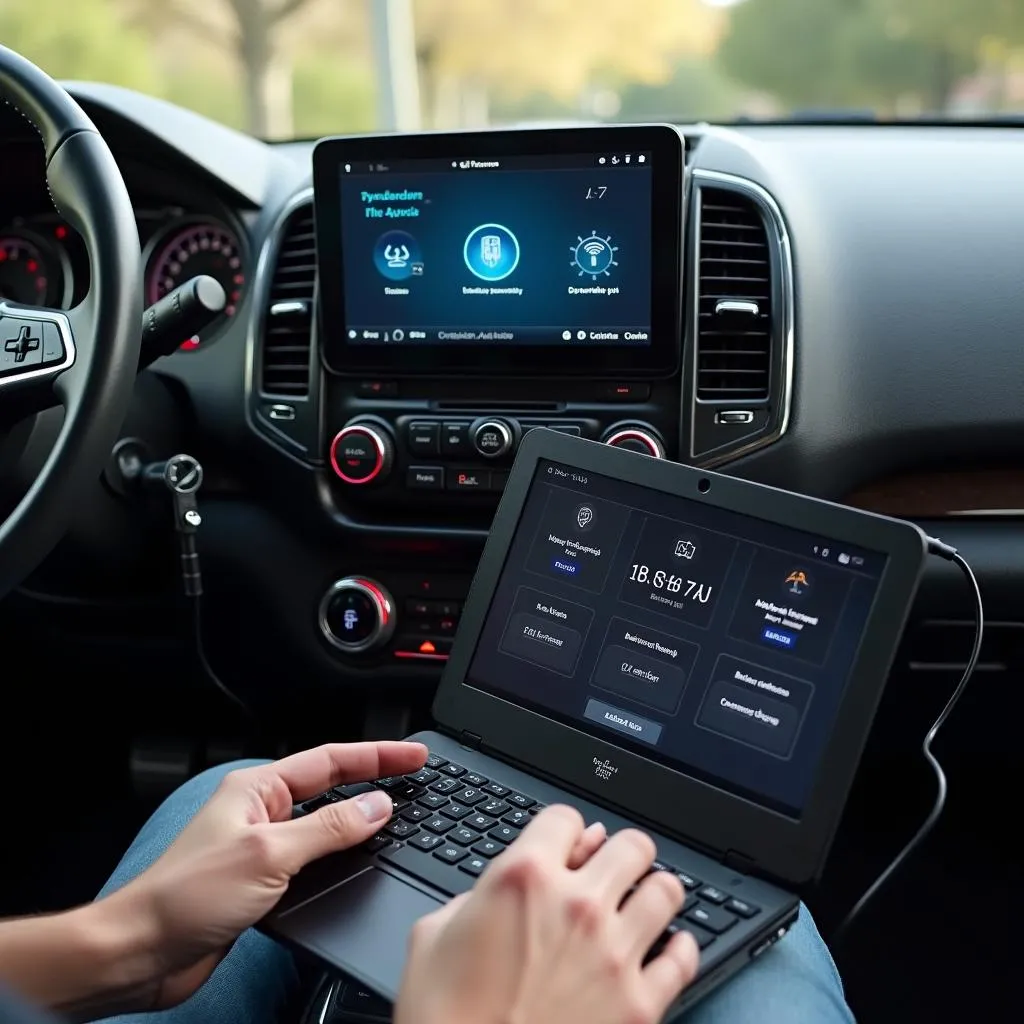A glowing brake warning light on your dashboard can be unsettling. While it might indicate a simple issue like worn brake pads, it could also point to more serious problems within your Volkswagen’s braking system. This comprehensive guide delves into the common reasons behind a persistent VW brake warning light and provides you with potential solutions to address them.
Common Causes of a VW Brake Warning Light Staying On
Several factors can trigger the brake warning light in your VW. Let’s explore some of the most prevalent culprits:
-
Worn Brake Pads: This is the most frequent reason for the warning light to illuminate. Most VW vehicles come equipped with brake pad wear sensors that trigger the light when the pads thin down to a certain level.
-
Low Brake Fluid: Brake fluid is the lifeblood of your VW’s braking system. If the fluid level drops too low, often due to a leak, the warning light will activate.
-
Faulty Brake Light Switch: The brake light switch is responsible for turning on your brake lights when you press the pedal. A malfunctioning switch can confuse the system and lead to a lit warning light.
-
ABS Issue: If there’s a problem with your Anti-lock Braking System (ABS), such as a faulty wheel speed sensor, the brake warning light might illuminate alongside the ABS warning light.
-
Hydraulic System Problems: Leaks or air in the brake lines can compromise the hydraulic pressure needed for proper braking, activating the warning light.
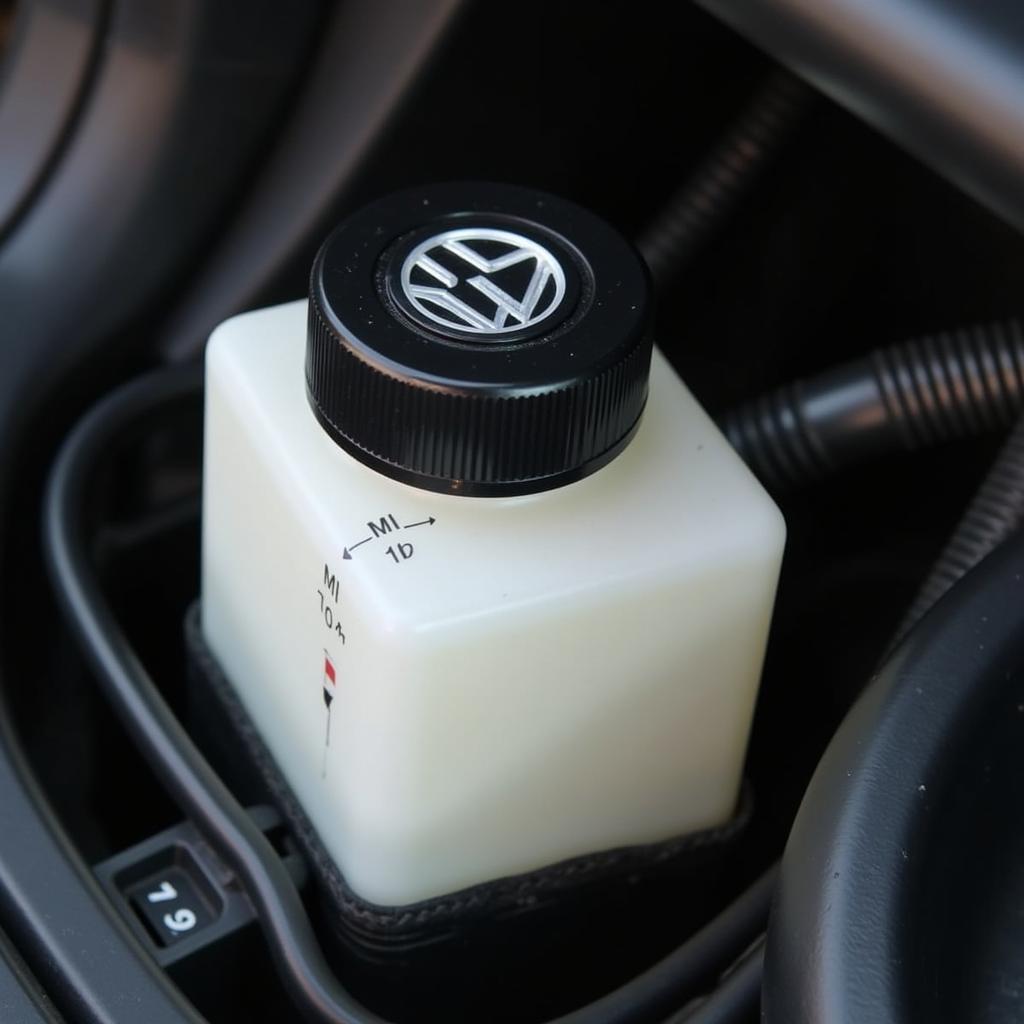 VW Brake Fluid Reservoir
VW Brake Fluid Reservoir
Diagnosing the Problem
Pinpointing the exact cause of the persistent brake warning light requires some investigation:
-
Check Brake Fluid Level: Open the hood and locate the brake fluid reservoir. It’s typically a translucent container with “DOT 3” or “DOT 4” markings. If the fluid level is below the “Min” mark, add the appropriate brake fluid.
-
Inspect Brake Pads: Visually examine your brake pads through the spaces between the wheel spokes. If the pads are thinner than ¼ inch, it’s time for a replacement.
-
Look for Leaks: Carefully check the area around the brake master cylinder, brake lines, and calipers for any signs of fluid leakage.
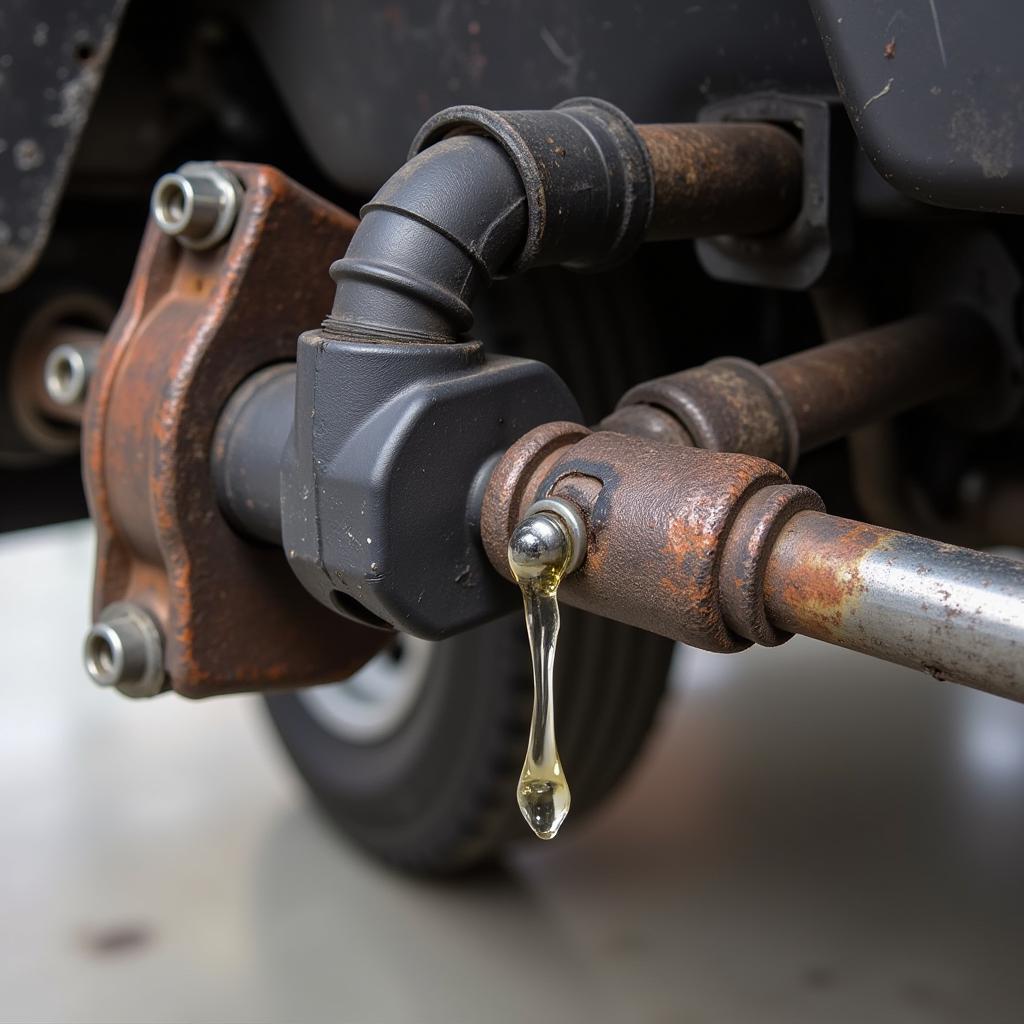 VW Brake Line Leak
VW Brake Line Leak
Expert Insight: “Never ignore a brake warning light,” advises Mark Schmidt, a seasoned Volkswagen mechanic with over 20 years of experience. “It’s always best to err on the side of caution and have a professional diagnose the issue. Driving with compromised brakes is extremely dangerous.”
Solutions and Repairs
The solution to your VW’s brake warning light problem depends on the underlying cause:
-
Brake Pad Replacement: Worn brake pads necessitate a replacement. This is a relatively straightforward job that many car owners can handle themselves. However, if you’re not comfortable working on brakes, it’s best to leave it to a professional.
-
Brake Fluid Flush: If the brake fluid is low or contaminated, a complete brake fluid flush is recommended. This involves draining the old fluid and replacing it with fresh fluid.
-
Component Replacement: Faulty components like the brake light switch, ABS sensors, or master cylinder will require replacement.
-
Addressing Leaks: Leaks in the brake lines or other components demand immediate attention. Repairing or replacing the leaking part is crucial to restore the integrity of the braking system.
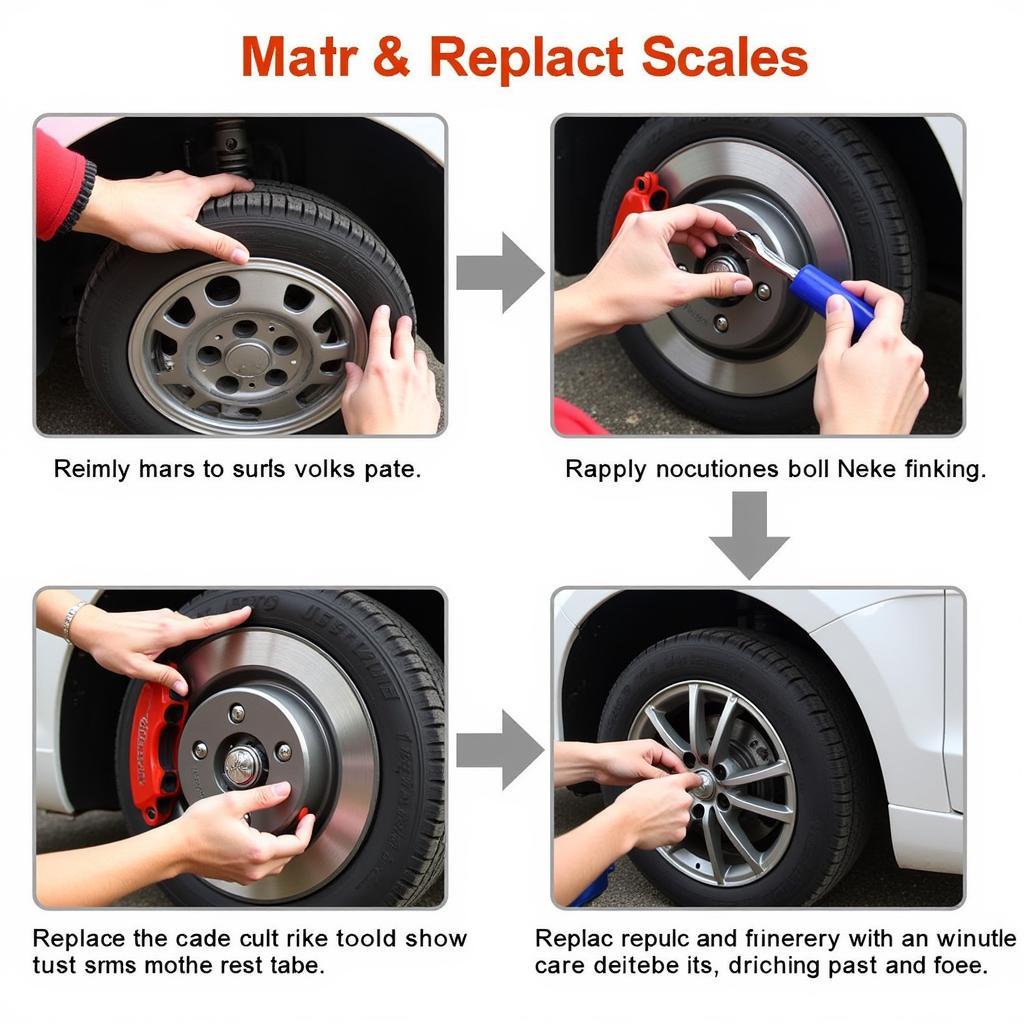 VW Brake Pad Replacement
VW Brake Pad Replacement
When to Seek Professional Help
While some brake-related issues can be addressed with basic DIY skills, it’s often best to consult a qualified Volkswagen mechanic, especially if:
- You’re uncomfortable working on brakes.
- The problem persists after basic troubleshooting.
- You suspect a serious issue with the ABS or hydraulic system.
FAQs about VW Brake Warning Light
Q: Can I drive my VW with the brake warning light on?
A: It’s strongly advised against driving with the brake warning light illuminated. Doing so could lead to brake failure and potentially dangerous situations.
Q: How often should I get my brake fluid flushed?
A: Volkswagen generally recommends a brake fluid flush every 2 years or 20,000 miles, whichever comes first.
Q: Is it safe to add brake fluid myself?
A: Yes, you can add brake fluid yourself. Just be sure to use the correct type of fluid specified in your VW owner’s manual.
Q: How much does it cost to replace brake pads on a VW?
A: The cost can vary depending on the model and labor rates, but expect to pay between $150 to $300 per axle for brake pad replacement.
Conclusion
A persistent VW brake warning light should never be ignored. By understanding the potential causes and taking appropriate action, you can ensure the safety and reliability of your Volkswagen’s braking system. Remember, when in doubt, consult a trusted mechanic. For further information on specific VW models, you can check out these resources: 2011 vw cc brake warning light stays on, volkswagen brake warning light stays, 1969 vw beetle brake warning light or volkswagen brake fault warning.

